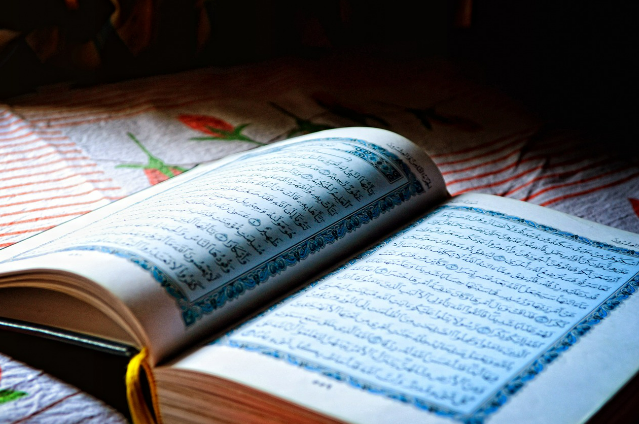
Image by Afshad Subair from Pixabay
The Quran, as the holy book of Islam, provides guidance on various aspects of life, including the importance of social justice. Throughout history, scholars have interpreted and analyzed Quranic verses related to social justice, offering different perspectives and insights. In this article, we will conduct a comparative study of the interpretations of Quranic verses on social justice in both traditional and modern Islamic scholarship, highlighting the similarities and differences in their approaches.
Traditional Islamic Scholarship
Traditional Islamic scholarship refers to the interpretations and understandings of the Quranic verses on social justice by scholars from the early centuries of Islam up until the pre-modern era. These scholars, known as jurists or theologians, relied on classical methodologies to interpret the Quran.
- Contextual Interpretation: Traditional scholars emphasized the importance of understanding the historical and cultural context in which the Quranic verses were revealed. They believed that a comprehensive understanding of the social, economic, and political circumstances of that time is essential for interpreting verses related to social justice accurately.
- Consistency with Legal Frameworks: Traditional scholars often interpreted Quranic verses on social justice within the framework of Islamic law (Sharia). They sought to align their interpretations with established legal principles and precedents, ensuring consistency with the broader legal system of Islam
Emphasis on Individual Conduct:
Traditional interpretations of Quranic verses on social justice often focused on the individual's responsibility to uphold justice and fairness in their personal conduct. Scholars emphasized the importance of individual moral obligations, such as giving charity, treating others with kindness, and avoiding oppression.
Redistribution of Wealth:
Traditional scholars recognized the Quran's emphasis on wealth redistribution and the obligation to support the less fortunate. They regarded the payment of Zakat (obligatory charity) and other forms of wealth redistribution as fundamental to achieving social justice in society.
Modern Islamic Scholarship
Modern Islamic scholarship encompasses the interpretations and analyses of Quranic verses on social justice by scholars in the contemporary era. These scholars, influenced by changes in society and approaches to knowledge, offer fresh perspectives on social justice in Islam.
Relevance to Current Context:
Modern scholars emphasize the need to interpret Quranic verses on social justice in light of the current social, economic, and political realities. They believe that contextualizing the message of the Quran allows for a more relevant and practical understanding of social justice issues.
Inclusivity and Human Rights:
Modern interpretations of Quranic verses on social justice emphasize the principles of inclusivity, equality, and human rights. Scholars argue that Islam promotes justice for all individuals, regardless of gender, race, or social status, and that social justice should encompass the well-being and rights of all members of society.
Structural and Systemic Analysis:
Modern scholars highlight the significance of analyzing the underlying structures and systems that perpetuate social injustices. They argue for a comprehensive understanding of the root causes of social inequalities and advocate for systemic changes to address these issues effectively.
Engagement with Contemporary Discourses:
Modern Islamic scholarship often engages with interdisciplinary fields, such as sociology, economics, and political science, to provide a holistic understanding of social justice. Scholars draw upon various methodologies and approaches to shed light on the multifaceted nature of social justice in Islam.
Conclusion
The interpretations of Quranic verses related to social justice in traditional and modern Islamic scholarship offer different perspectives and approaches. While traditional scholarship focuses on the historical context, legal frameworks, and individual conduct, modern scholarship emphasizes the relevance to the current context, inclusivity, systemic analysis, and engagement with contemporary discourses. Both traditional and modern interpretations play a crucial role in understanding social justice in Islam. Traditional scholarship provides a strong foundation rooted in the classical methodologies of interpretation, while modern scholarship offers fresh insights that address the challenges and complexities of the contemporary world. By studying the interpretations from both perspectives, Muslims can gain a comprehensive understanding of the Quran's teachings on social justice. This allows for a more nuanced approach to addressing social inequalities and working towards a more just and equitable society, guided by the principles and values of Islam.
